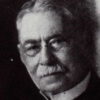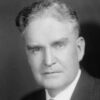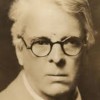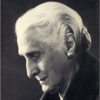The uses of a dictionary: at thirteen we look up lewd, licentious, lascivious; at thirty, febrile and inchoate; at fifty, endostosis.
Mignon McLaughlin (1913-1983) American journalist and author
The Neurotic’s Notebook, ch. 10 (1963)
(Source)
Quotations about:
age
Note not all quotations have been tagged, so Search may find additional quotes on this topic.
The one thing that unifies men in a given age is not their individual philosophies but the dominant problem that these philosophies are designed to solve.
Jacques Barzun (1907-2012) French-American historian, educator, polymath
Romanticism and the Modern Ego, ch. 1 (1943)
(Source)
Man comes to each age of his life as a novice.
[L’homme arrive novice à chaque âge de la vie.]
Nicolas Chamfort (1741-1794) French writer, epigrammist (b. Nicolas-Sébastien Roch)
Products of Perfected Civilization [Produits de la Civilisation Perfectionnée], Part 2 “Characters and Anecdotes [Caractères et Anecdotes],” ch. 12 (1795) [tr. Merwin (1969)]
(Source)
(Source (French)). Alternate translations:
Man arrives a novice at every age of life.
[ed. Mathews (1878)]
Man reaches each stage in his life as a novice.
[tr. Hutchinson (1902), "The Cynic's Breviary"]
A man begins every stage of his life as a novice.
[tr. Parmée (2003), ¶ 422]
Few books can please us throughout life. For some we lose all liking as we grow in age, wisdom, or good sense.
[Peu de livres peuvent plaire toute la vie. Il y en a dont on se dégoûte avec le temps, la sagesse ou le bon sens.]
Joseph Joubert (1754-1824) French moralist, philosopher, essayist, poet
Pensées [Thoughts], ch. 23 “Des Qualités de l’Écrivain [Of the Qualities of Writers],” ¶ 178 (1850 ed.) [tr. Attwell (1896), ¶ 375]
(Source)
(Source (French)). Alternate translations:
Few books give life-long pleasure. There are some for which, with the growth of time, wisdom, and good sense, we lose all taste.
[tr. Lyttelton (1899), ch. 22, ¶ 84]
Hail, lady of no light footfall,
And eyes not black, and nose not small,
And lips not dry, and hands not long,
And, truly, not too nice a tongue,
The Formian bankrupt’s paramour.
The Province calls you dainty? Your
Face, and not Lesbia’s, is the rage?
O! dull and undiscerning age![Salve, nec minimo puella naso
nec bello pede nec nigris ocellis
nec longis digitis nec ore sicco
nec sane nimis elegante lingua,
decoctoris amica Formiani.
Ten provincia narrat esse bellam?
Tecum Lesbia nostra comparatur?
O saeclum insapiens et infacetum!]Catullus (c. 84 BC – c. 54 BC) Latin poet [Gaius Valerius Catullus]
Carmina # 43 “To Mamurra’s Mistress” [tr. MacNaghten (1925)]
(Source)
Mamurra, also known as Formianus (from the province of Formiae), was an ally of Caesar, but enemy of Catullus. Catullus devotes a number of his odes to attacking Mamurra or, in a few cases, his mistress (who, in some sources, is named Amiana or Ameana).
The poem is noteworthy both for cateloguing unattractive traits (Roman poetry and art make it clear what was considered attractive), and for the final line in its condemnation of a land that would ever place the unnamed mistress over the beauties of Catullus' beloved Lesbia.
(Source (Latin)). Alternate translations:
Though splaw thy feet, and snub thy nose,
Thy fingers short, and unlike sloes
Thine eyes in hue may be;
Thy lip with driv'lling moisture dew'd
Thy language vulgar, manners rude,
Yet, wanton, hail to thee!
And does the province praise thy grace;
And e'en presume thy form and face
With Lesbia to compare?
Then why should I thy charms dispraise
'Mid vulgar fools, in tasteless days,
'Tis useless to be fair.
[tr. Lamb (1821)]
Though a decided snub your nose,
Your feet the kind called stumpy,
Your eyes by no means black as sloes,
Your fingers fat and dumpy;
Your lip not peachy soft, your speech
Less aptr to charm than pain us;
Yet still I hail you, mistress frail
Of spendthrift Formianus.
The province, bless its stupid soul!
Is mad about your beauty,
So let me also pay my toll
Of homage and of duty.
But then they say your shape, your grace,
My Lesbia's, mine, surpasses!
Oh woe, to live with such a race
Of buzzards, owls, and asses!
[tr. T. Martin (1861)]
Hail, maiden! with nor little nose,
Nor pretty foot, nor jet-black eye,
Nor fingers long, nor mouth e'er dry,
Nor tongue whence pleasing prattle flows.
You spendthrift Formian's heart engage;
And doth the province call you fair,
And Lesbia's charms with yours compare?
O witless and O boorish age!
[tr. Cranstoun (1867)]
Hail, fair virgin, a nose among the larger,
Feet not dainty, nor eyes to match a raven,
Mouth scarce tenible, hands not wholly faultless,
Tongue most surely not absolute refinement,
Bankrupt Formian, your declar'd devotion.
Thou the beauty, the talk of all the province?
Thou my Lesbia tamely think to rival?
O preposterous, empty generation!
[tr. Ellis (1871)]
Hail, girl who neither nose of minim size
Owns, nor a pretty foot, nor jetty eyes,
Nor thin long fingers, nor mouth dry of slaver
Nor yet too graceful tongue of pleasant flavour,
Leman to Formian that rake-a-hell.
What, can the Province boast of thee as belle?
Thee with my Lesbia durst it make compare?
O Age insipid, of all humour bare!
[tr. Burton (1893)]
Hail, girl with nose not the smallest, and with foot not lovely, and with eyes not black, and with fingers not long, and with mouth not dry and with tongue not so very elegant, the wench of the bankrupt Formian. And the province declares you to be lovely? With you our Lesbia is to be compared? O generation witless and unmannerly!
[tr. Smithers (1894)]
I greet you, lady, you who neither have a tiny nose, nor a pretty foot, nor black eyes, nor long fingers, nor dry mouth, nor indeed a very refined tongue, mistress of the bankrupt Formiae. Is it you who are pretty, as the Province tells us? is it with you that our Lesbia is compared? O, this age! how tasteless and illbred it is!
[tr. Warre Cornish (1904)]
Hail, maid with nose by no means small, foot by no means shapely, eyes by no means of jet, fingers by no means long, mouth by no means dry, speech by no means too refined, friend of the Formian waster. Do the provincials call you beautiful? Do they compare you with my Lesbia? Oh foolish and tasteless age!
[tr. Stuttaford (1912)]
Pshaw, little girl, you're much too small,
You've scarcely any nose at all.
Your feet are shapeless, fingers, too,
Your eyes a dull and faded blue.
With lips as parched as last year's peas.
And silly tongue, untaught to please.
They say that Formian calls you fair.
And that they praise you everywhere.
A dull and senseless age -- ah me.
If they could Lesbia's beauty see!
[tr. Stewart (1915)]
Thy nose is broad and large thy feet,
Thine eyes are neither dark nor clear,
Thy hands are squat, thy lips unsweet,
Thy language shocks a decent ear.
Thy province swears that thou art fair,
O mistress of a village beau!
Swears thou with Lesbia canst compare;
O tasteless age, thy wits how slow!
[tr. Symons-Jeune (1923)]
Good morning, dear lady; your nose is too long,
Your fingers too stumpy, your language too strong.
Your feet are ill shaped, and your lips wet with slobber,
Your eyes pale and dull; and your lover's a robber,
Who won't pay his debts. Yet withal people hold
You a beauty , when you're in the country, I'm told.
To think that dull fools for one instant should dare
Your charms with my Lesbia's face to compare!
[tr. Wright (1926)]
Listen, girl: your nose is not too small and
your foot somehow lacks shapeliness, your eyes
are not so bright , your fingers though they should be
are neither long nor graceful , nor can your lips
(mouth dripping) be kissed for love, nor is your speech
soft music.
And this girl is the lady friend
of that debauched citizen Mamurra.
They say that you are lovely (rumours from the provinces)
comparing you with Lesbia.
The times are bad
and this an ignorant generation.
[tr. Gregory (1931)]
Greetings, girl! You haven't got much --
Neither small nose, nor a pretty foot,
Dark eyes, or slender hands to touch,
No dry mouth; the way you put
Your phrases isn't neat at all,
Mistress of the bankrupt man
From Formiae -- but Cisalpine Gaul
Says you're lovely, lovelier than
My Lesbia, even? Oh, enough!
This ignorant age -- how rude and rough!
[tr. Hollander (1976)]
Greetings ot you, girl of the nose not tiny,
the feet not pretty, eyes not darkly-shadowed,
stubby fat fingers, mouth forever spraying
language that shows us your lack of refinement,
whore of that bankrupt wastrel from Formiae!
Is it your beauty they praise in the province?
Do they compare you to our Lesbia?
Mindless this age. And insensitive, really.
[tr. C. Martin (1979)]
Hello, girl, neither with the smallest nose,
Nor with pretty feet nor with black little eyes
Nor with long fingers nor with dry lips
Nor clearly with a very refined tongue.
Girl/friend of the spendthrift from Formiae,
Does the province report that you are beautiful?
Is our Lesbia compared with you?
O tasteless and crude age!
[tr. Drudy (1997)]
Greetings, girl with a nose not the shortest,
feet not so lovely, eyes not of the darkest,
fingers not slender, mouth never healed,
and a not excessively charming tongue,
bankrupt Formianus’s ‘little friend’.
And the Province pronounces you beautiful?
To be compared to my Lesbia?
O witless and ignorant age!
[tr. Kline (2001)]
Hello, girl without the smallest nose
Nor pretty feet, nor dark eyes
Nor elegant fingers nor dry mouth
Nor language int he least refined
Girlfriend of that bankrupt from Formia.
So country people call you beautiful?!
Our Lesbia is compared with you?!
Oh, what a stupid and tasteless age this is!
[tr. Wikibooks (2017)]
Greetings, you girl with neither a little nose,
nor handsome feet, black little eyes
long fingers, a dry mouth,
and truly tongue not exceedingly elegant.
Girlfriend of the bankrupt of Formiae,
does the province say that you are beautiful?
Is our Lesbia compared with you?
Oh foolish and coarse generation!
[tr. Wikisource (2018)]
Howdy, girl with the not-small nose,
Feet not beautiful, eyes not black,
Fingers not long, the lips not dry,
A tongue not quite so elegant,
“Friend” of a Formian bankrupt.
The sticks proclaim you’re beautiful?
With you our Lesbia is compared?
O times, unthinking and vulgar!
[tr. @sentantiq (2021)]
Old wine, and an old friend, are good provisions.
George Herbert (1593-1633) Welsh priest, orator, poet.
Jacula Prudentum, or Outlandish Proverbs, Sentences, &c. (compiler), # 136 (1640 ed.)
(Source)
And in truth, of course, I’m not just 60 — I’m twelve, I’m 23, I’m 37, I’m 42, I’m 18. I’m every age I’ve ever been. Depending on what day of the week it is and what the situation calls for at the moment.
[Und in Wahrheit bin ich natürlich nicht nur 60 – ich bin zwölf, ich bin 23, ich bin 37, ich bin 42, ich bin 18. Ich habe jedes Alter, das ich je gehabt habe. Je nachdem, welcher Wochentag ist und was die Situation gerade erfordert.]
William Martin "Billy" Joel (b. 1949) American singer, songwriter, pianist
“Ohne die Nazis hätte es Billy Joel nie gegeben,” Die Welt (2009-05-10)
This interview is published in German, but in it Joel comments he only knows a bit of the language (his father was a Jewish refugee from Germany before WW2), so it was likely conducted in English. The German version is from the article. The English version is from Wikiquote (source unknown), which titles the article "Without the Nazis, there wouldn't have been Billy Joel."
I am old now, or at least, I am no longer young, and everything I see reminds me of something else I’ve seen, such that I see nothing for the first time. A bonny girl, her hair fiery red, reminds me only of another hundred such lasses, and their mothers, and what they were as they grew, and what they looked like when they died. It is the curse of age, that all things are reflections of other things.
Neil Gaiman (b. 1960) British author, screenwriter, fabulist
“The Truth Is a Cave in the Black Mountains …”, Trigger Warning (2015)
(Source)
Youth is not a time of life; it is a state of mind; it is not a matter of rosy cheeks, red lips and supple knees; it is a matter of the will, a quality of the imagination, a vigor of the emotions; it is the freshness of the deep springs of life.
Youth means a temperamental predominance of courage over timidity of the appetite, for adventure over the love of ease. This often exists in a man of sixty more than a boy of twenty. Nobody grows old merely by a number of years. We grow old by deserting our ideals.
Years may wrinkle the skin, but to give up enthusiasm wrinkles the soul. Worry, fear, self-distrust bows the heart and turns the spirit back to dust.
Whether sixty or sixteen, there is in every human being’s heart the lure of wonder, the unfailing child-like appetite of what’s next, and the joy of the game of living.
When the aerials are down, and your spirit is covered with snows of cynicism and the ice of pessimism, then you are grown old, even at twenty, but as long as your aerials are up, to catch the waves of optimism, there is hope you may die young at eighty.
Samuel Ullman (1840-1924) German-American businessman, poet, humanitarian, religious leader
“Youth” (1918)
(Source)
This poem was a favorite of Douglas MacArthur, who had a copy hung in his office in Tokyo, and was responsible for much of the author's subsequent fame in Japan.
But now at thirty years my hair is gray ––
(I wonder what it will be like at forty?
I thought of a peruke the other day)
My heart is not much greener; and, in short, I
Have squander’d my whole summer while ’twas May,
And feel no more the spirit to retort; I
Have spent my life, both interest and principal,
And deem not, what I deem’d, my soul invincible.
The years swarm around me like midges, and though each tiny bite only costs me a single drop of blood, they are so thick I am nearly bled dry.
Stephen L. Burns (b. 1953) American author
“Redeemer’s Riddle,” Sword and Sorceress IV (1987) [ed. Marion Zimmer Bradley]
(Source)
Nothing — so it seems to me — is more beautiful than the love that has weathered the storms of life. The sweet, tender blossom that flowers in the heart of the young — in hearts such as yours — that, too, is beautiful. The love of the young for the young, that is the beginning of life. But the love of the old for the old, that is the beginning of — of things longer.
Jerome K. Jerome (1859-1927) English writer, humorist [Jerome Klapka Jerome]
“Passing of the Third Floor Back” [The Stranger] (1908)
(Source)
I’ve come up with a set of rules that describe our reactions to technologies:
1. Anything that is in the world when you’re born is normal and ordinary and is just a natural part of the way the world works.
2. Anything that’s invented between when you’re fifteen and thirty-five is new and exciting and revolutionary and you can probably get a career in it.
3. Anything invented after you’re thirty-five is against the natural order of things.
“Pooh, promise you won’t forget about me, ever. Not even when I’m a hundred.”
Pooh thought for a little.
“How old shall I be then?”
“Ninety-nine.”
Pooh nodded.
“I promise,” he said.A. A. Milne (1882-1956) English poet and playwright [Alan Alexander Milne]
The House at Pooh Corner, ch. 10 [Christopher Robin and Pooh] (1928)
(Source)
Possibly the inspiration of the spurious Pooh quotation:
If you live to be a hundred, I want to live to be a hundred minus one day, so I never have to live without you.
For more discussion about this and related quotes, see May You All Live Forever. May I Live Forever Less A Day – Quote Investigator®.
When you’re forty, half of you belongs to the past — and when you’re seventy, nearly all of you —
Jean Anouilh (1910-1987) French dramatist
Léocadia [Time Remembered], Act 2, sc. 2 [Duchess] (1939) [tr. Moyes (1955)]
(Source)
My son, young men’s arms are indeed taut for action, but old men’s counsels are better; for time teaches the most subtle lessons.
Euripides (485?-406? BC) Greek tragic dramatist
Bellerophon [Βελλεροφῶν], frag. 291 (TGF) (c. 430 BC) [tr. Collard, Hargreaves, Cropp (1995)]
(Source)
Alternate translation:
Son, the hands of young men always itch for action, but the
judgment of the old is sounder.
Time teaches discrimination
[tr. Stevens (2012)]
The course of a man’s life is certain. The path that we follow goes in only one direction. Every mile is distinctly marked with its own peculiar characteristic — the vulnerability of infants, the animal high spirits of adolescents, the seriousness of adults, the maturity of old men — and at each of these stages we must accept gracefully what Nature grants us.
[Cursus est certus aetatis et una via naturae eaque simplex, suaque cuique parti aetatis tempestivitas est data, ut et infirmitas puerorum et ferocitas iuvenum et gravitas iam constantis aetatis et senectutis maturitas naturale quiddam habet, quod suo tempore percipi debeat.]
Marcus Tullius Cicero (106-43 BC) Roman orator, statesman, philosopher
De Senectute [Cato Maior; On Old Age], ch. 10 / sec. 33 (10.33) (44 BC) [tr. Cobbold (2012)]
(Source)
(Source (Latin)). Alternate translations:
The cours and the weye of age is certeyne and determyned by nature, whiche hathe onely awey which is symple & is nothyng different more in the one than in the othir. But each go by that symple and determyned wey aftir the degrees in their cours from the one age in to that other. And yet nature had given to every part of age his owne propre season and tyme, and hir pertynent cours of usage in kynde. That is to witt, that sekenesse and maladye is appropryd to the age of puerice in childhode, & cruelte is appropryd to the age of yongth, worshipfulnesse and sadnesse of maners be appropryd to the age of virilite whiche is the fyfthe age. Moderaunce and temperaunce be appropryd to olde age. Eueriche oweth to have sumwhat naturelly and appropryd unto that whiche may be gadird in his tyme.
[tr. Worcester/Worcester/Scrope (1481), Part 3]
The race and course of age is certain; and there is but one way of nature and the same simple; and to every part of a man's life and age are given his convenient times and proper tempestivities. For even as weakness and infirmity is incident to young children, lustiness and bravery to young men, and gravity when they come to ripe years; so, likewise the maturity or ripeness of old age have a certain special gift given and attributed to it by nature, which ought not to be neglected, but to be taken in his own time and season when it cometh.
[tr. Newton (1569)]
There is but one course of age, and one way of nature, and the same simple, and to every part of age its own timelines is given; for as infirmity belongs to child-hood, fiercenesse to youth, and gravity to age, so the true ripenesse of age hath a certaine natural gravity in it, which ought to be used in it own time.
[tr. Austin (1648)]
Simple, and certain Nature's wayes appear,
As she sets forth the seasons of the year.
So in all parts of life we find her truth,
Weakness to childhood, rashness to our youth:
To elder years to be discreet and grave,
Then to old age maturity she gave.
[tr. Denham (1669)]
Every Age has something in it, peculiar to it self: as Weakness to our Infancy, an unguided Warmth to Youth, Seriousness to Manhood, and a certain Maturity of Judgment to Old Age, which we may expect to reap the Fruits of, when advanced to it.
[tr. Hemming (1716)]
Life has a sure Course, and Nature but one Way, that that too simple and plain. And to every Part of Man's Age a peculiar Propriety of Temper is given: Thus Weakness in Children, a Boldness in Youth, and a Gravity in Manhood appears; and a full Ripeness of Years has always something which seems natural to it, and which ought to be made use of at a proper Time.
[tr. J. D. (1744)]
The Stages of Life are fixed; Nature is the same in all, and goes on in a plain and steady Course: Every Part of Life, like the Year, has its peculiar Season: As Children are by Nature weak, Youth is rash and bold; staid Manhood more solid and grave; and so Old-Age in its Maturity, has something natural to itself, that ought particularly to recommend it.
[tr. Logan (1750)]
Nature conducts us, by a regular and insensible progression through the different seasons of human life; to each of which she has annexed its proper and distinguishing characteristic. As imbecility is the attribute of infancy, ardour of youth, and gravity of manhood; so declining age has its essential properties, which gradually disclose themselves as years increase.
[tr. Melmoth (1773)]
The course of life is fixed, and the path of nature is one, and that simple. And its own proper seasonableness has been given to each division of life; so that both the feebleness of boys and the proud spirit of young men, and the gravity of a now settle period of life, and the maturity of old age, has something natural to it, which ought to be gathered in its own season.
[Cornish Bros. ed. (1847)]
There is a definite career in life, and one way of nature, and that a simple one; and to every part ot life its own peculiar period has been assigned: so that both the feebleness of boys, and the high spirit of young men, and the steadiness of now fixed manhood, and the maturity of old age, have something natural, which ought to be enjoyed in their own time.
[tr. Edmonds (1874)]
Life has its fixed course, and nature one unvarying way; each age has assigned to it what best suits it, so that the fickleness of boyhood, the sanguine temper of youth, the soberness of riper years, and the maturity of old age, equally have something in harmony with nature, which ought to be made availing in its season.
[tr. Peabody (1884)]
The course of life is fixed, and nature admits of its being run but in one way, and only once; and to each part of our life there is something specially seasonable; so that the feebleness of children, as well as the high spirit of youth, the soberness of maturer years, and the ripe wisdom of old age -- all have a certain natural advantage which should be secured in its proper season.
[tr. Shuckburgh (1895)]
One only way
Nature pursues, and that a simple one:
To each is given what is fit for him.
The boy is weak: youth is more full of fire:
Increasing years have more of soberness:
And as in age there is a ripeness too.
Each should be garnered at its proper time,
And made the most of.
[tr. Allison (1916)]
Life's race-course is fixed; Nature has only a single path and that path is run but once, and to each stage of existence has been allotted its own appropriate quality; so that the weakness of childhood, the impetuosity of youth, the seriousness of middle life, the maturity of old age -- each bears some of Nature's fruit, which must be garnered in its own season.
[tr. Falconer (1923)]
The course of life is clear to see; nature has only one path, and it has no turnings. Each season of life has an advantage peculiarly its own; the innocence of children, the hot blood of youth, the gravity of the prime of life, and the mellowness of age all possess advantages that are theirs by nature, and that should be garnered each at its proper time.
[tr. Copley (1967)]
Life and nature have but one direction
Easy to take, without correction.
Each of life’s rite of passage dates
Has its own distinguishing traits:
A child’s weakness
A youth’s boldness
An adult’s authority
An old man’s maturity
And each with a certain natural zest
To be reaped when it’s time for its harvest.
[tr. Bozzi (2015)]
The course of life cannot change. Nature has but a single path and you travel it only once. Each stage of life has its own appropriate qualities -- weakness in childhood, boldness in youth, seriousness in middle age, and maturity in old age. These are fruits that must be harvested in due season.
[tr. Freeman (2016)]
The child thinks of growing old as an almost obscene calamity, which for some mysterious reason will never happen to itself. All who have pass the age of thirty five are joyless grotesques, endlessly fussing about things of no importance and staying alive without, so far as the child can see, having anything to live for. Only child life is real life.
George Orwell (1903-1950) English writer [pseud. of Eric Arthur Blair]
“Such, Such Were the Joys” (1948)
(Source)
Not anything is more responsible for the good old days than the fact that the grownups of one generation always remember the world as it looked to them in their young days, not as it looked to their elders.
Marcelene Cox (1900-1998) American writer, columnist, aphorist
“Ask Any Woman” column, Ladies’ Home Journal (1960-05)
(Source)
If by the age of forty a man is still disliked there is no hope for him.
[年四十而見惡焉、其終也已。]
Confucius (c. 551- c. 479 BC) Chinese philosopher, sage, politician [孔夫子 (Kǒng Fūzǐ, K'ung Fu-tzu, K'ung Fu Tse), 孔子 (Kǒngzǐ, Chungni), 孔丘 (Kǒng Qiū, K'ung Ch'iu)]
The Analects [論語, 论语, Lúnyǔ], Book 17, verse 26 (17.26) (6th C. BC – AD 3rd C.) [tr. Lau (1979)]
(Source)
(Source (Chinese)). Alternate translations:
When a man at forty is the object of dislike, he will always continue what he is.
[tr. Legge (1861)]
When a man meets with odium at forty, he will do so to the end.
[tr. Jennings (1895)]
If a man after forty is an object of dislike to men, he will continue to be so to the end of his days.
[tr. Ku Hung-Ming (1898)]
If a man reach forty and yet be disliked by his fellows, he will be so to the end.
[tr. Soothill (1910)]
Forty and disliked. He is at the end already; too late to alter.
[tr. Soothill (1910) - alternate 1]
At 40 a man's character is settled, and if he still be detested by his fellows, then here his end is reached.
[tr. Soothill (1910) - alternate 2]
If a man is hateful at forty he'll be so to the end.
[tr. Pound (1933)]
One who has reached the age of forty and is still disliked will be so till the end.
[tr. Waley (1938)]
It is all over for the man of forty who is held in aversion.
[tr. Ware (1950), 17.24]
If hateful things are seen in one at the age of forty, that is indeed how one will end up.
[tr. Dawson (1993)]
Whoever, by the age of forty, is still disliked, will remain so till the end.
[tr. Leys (1997)]
If, at forty, a man is still loathed, he is done for.
[tr. Huang (1997), 17.25]
If one is still disliked at his forty years of age, one is going to the end.
[tr. Cai/Yu (1998), No. 466]
The person who at age forty still evokes the dislike of others is a hopeless case.
[tr. Ames/Rosemont (1998)]
If he is forty and is still hated, he will probably be so until the end.
[tr. Brooks/Brooks (1998), 17.24]
If you reach forty and find it all hateful, you'll be that way to the death.
[tr. Hinton (1998), 17.25]
If, having reached the age of forty, you still find yourself despised by others, you will remain despised until the end of your days.
[tr. Slingerland (2003)]
Forty and hated by others -- and he’ll be so the rest of his life.
[tr. Watson (2007)]
If a person has reached forty but is still an outcast, he will not have much hope for the rest of his life.
[tr. Li (2020)]
But our machines have now been running for 70. or 80. years, and we must expect that, worn as they are, here a pivot, there a wheel, now a pinion, next a spring, will be giving way: and however we may tinker them up for awhile, all will at length surcease motion. Our watches, with works of brass and steel, wear out within that period.
Thomas Jefferson (1743-1826) American political philosopher, polymath, statesman, US President (1801-09)
Letter to John Adams (5 Jul 1814)
(Source)
Jefferson (and Adams) lived another 12 years, both dying on 4 July 1826.
Age is no second childhood — age makes plain,
Children we were, true children we remain.[Das Alter macht nicht kindisch, wie man spricht,
Es findet uns nur noch als wahre Kinder.]Johann Wolfgang von Goethe (1749-1832) German poet, statesman, scientist
Faust: a Tragedy [eine Tragödie], Part 1, sc. 2 “Prelude on the Stage” / “Prelude at the Theatre,” l. 212ff [Merryman] (1808-1829) [tr. Luke (1987)]
(Source)
The character is identified as Lustige Person in the original, translated in various English sources as Merryman, Merryfellow, Merry Andrew, Jester, Comedian, and Clown.
Some translations (and this site) include the Declaration, Prelude on the Stage, and Prologue in Heaven as individual scenes; others do not , leading to their Part 1 scenes being numbered three lower.
(Source (German)). Alternate translations:
Age makes not childish, as one oft avers;
It finds us still true children merely.
[tr. Priest (1808)]
Old age does not make childish, as men say; it only finds us still as true children.
[tr. Hayward (1831)]
Age does not make us childish, as folk say,
It finds us genuine children e'en in eld.
[tr. Swanwick (1850)]
Age does not make us childish, as they say,
But we are still true children when it finds us.
[tr. Brooks (1868)]
Age childish makes, they say, but ’tis not true;
We’re only genuine children still, in Age’s season!
[tr. Taylor (1870)]
Old age, not childish, makes the old; but they
Are genuine children of a mellower day.
[tr. Blackie (1880)]
Old age not childish makes, whate'er one says;
It only finds us still as very children.
[tr. Latham (1908)]
Age does not make us childish, as we're told,
It merely finds we are still young at heart.
[tr. Kaufmann (1961)]
They say that age makes people childish;
I say it merely finds us still true children.
[tr. Salm (1962)]
Old age does not make childish, as they claim,
It merely finds us genuine children yet.
[tr. Arndt (1976)]
Age doesn't make us childish, God knows,
Just finds us the same old children still.
[tr. Greenberg (1992)]
They say age makes us childish - but it can
Make truer children of us than before.
[tr. Williams (1999)]
Age doesn’t make us childish, as they say,
It finds that we’re still children.
[tr. Kline (2003)]
Your lady friends are ill to see,
All old or ugly as can be,
And in their company you go
To banquet, play, and portico;
This hideous background you prepare
To seem, by contrast, young and fair.[Omnes aut vetulas habes amicas
Aut turpes vetulisque foediores.
Has ducis comites trahisque tecum
Per convivia, porticus, theatra.
Sic formosa, Fabulla, sic puella es.]Martial (AD c.39-c.103) Spanish Roman poet, satirist, epigrammatist [Marcus Valerius Martialis]
Epigrams [Epigrammata], Book 8, epigram 79 (8.79) (AD 94) [tr. Pott & Wright (1921), “The Contrast”]
(Source)
"To Fabulla." (Source (Latin)). Alternate translations:
All thy companions aged beldames are,
Or more deform'd than age makes any, far:
These cattle at thy heels thou trail'st always
To public walks, to suppers, and to plays.
'Cause when with such alone we thee compare,
Thou canst be said, Fabulla, young or fair.
[tr. Killigrew (1695)]
All the companions of her grace, I'm told,
Are either very plan, or very old.
With these she visits: these she drags about,
To play, to ball, assembly, auctions, rout:
With these she sups: with these she takes the air.
Without such foils is lady dutchess fair?
[tr. Hay (1755)]
Old women are thine only friends;
Or rivals, safe as they.
No other face thy face attends,
To table, porch or play.
Fabulla, thus thou beauteous art,
And thus thou still art young.
Oh! solace to my eyes impart;
Or silence to my tongue.
[tr. Elphinston (1782), Book 6, Part 3, ep. 94]
All your female friends are either old or ugly; nay, more ugly than old women usually are. These you lead about in your train, and drag with you to feasts, porticoes, and theatres. Thus, Fabulla, you seem handsome, thus you seem young.
[tr. Bohn's Classical (1859)]
All the female friends you have are either old crones or ugly, and fouler than old crones. These, as your companions, you conduct and drag about with you through parties, colonnades, theaters. In this way, Fabulla, you are lovely, in this way young.
[tr. Ker (1919)]
The friends that old Fabulla owns
Are harridans and ancient crones,
Ill-favored witches, what you will;
These are her constant comrades still
To banquets, theatres, and shows;
So ever fair and young she goes.
[tr. Francis & Tatum (1924), ep. 442]
The only female friends she has
Are old or ugly crows.
These she drags along with her
To parties, visits, shows.
So it's no cause for wonder that
Amidst such company
She's young, attractive, beautiful --
Almost a joy to see!
[tr. Marcellino (1968)]
Her women friends are all old hags
Or, worse, hideous girls. She drags
Them with her everywhere she goes --
To parties, theaters, porticoes.
Clever Fabulla! Set among
Those foils you shine, even look young.
[tr. Michie (1972)]
All your women friends are either old hags or frights uglier than old hags. These are your companions whom you bring with you and trail through dinner parties, colonnades, theaters. In this way, Fabullla, you are a beauty, you are a girl.
[tr. Shackleton Bailey (1993)]
With women you keep company
Who are ugly as can be.
These ancient frights you take along
To show off in your social throng.
You hope that we will make compare,
So even you look young and fair.
[tr. Wills (2007)]
All your friends are ancient hags
or eyesores uglier than those.
These are the company you drag
to banquets, plays, and porticoes.
Fabulla, when you're seen among
such friends, you're beautiful and young.
[tr. McLean (2014)]
The thousands of possible lives that used to spread out in front of me have snapped shut into one, and all I get is what I’ve got. It’s time to pass on the possibilities, all those deliciously half-open doors, to my children, and drive them to the airports, and wish them bon voyage.
JAQUES: [O]ne man in his time plays many parts,
His acts being seven ages. At first the infant,
Mewling and puking in the nurse’s arms.
Then the whining schoolboy with his satchel
And shining morning face, creeping like snail
Unwillingly to school. And then the lover,
Sighing like furnace, with a woeful ballad
Made to his mistress’ eyebrow. Then a soldier,
Full of strange oaths and bearded like the pard,
Jealous in honor, sudden and quick in quarrel,
Seeking the bubble reputation
Even in the cannon’s mouth. And then the justice,
In fair round belly with good capon lined,
With eyes severe and beard of formal cut,
Full of wise saws and modern instances;
And so he plays his part. The sixth age shifts
Into the lean and slippered pantaloon
With spectacles on nose and pouch on side,
His youthful hose, well saved, a world too wide
For his shrunk shank, and his big manly voice,
Turning again toward childish treble, pipes
And whistles in his sound. Last scene of all,
That ends this strange eventful history,
Is second childishness and mere oblivion,
Sans teeth, sans eyes, sans taste, sans everything.William Shakespeare (1564-1616) English dramatist and poet
As You Like It, Act 2, sc. 7, l. 149ff (2.7.149-173) (1599)
(Source)
Feignlove, half-starved, a rich old hag has wed: —
Poor Feignlove, doom’d to earn his board in bed.[Duxerat esuriens locupletem pauper anumque:
Uxorem pascit Gellius et futuit.]Martial (AD c.39-c.103) Spanish Roman poet, satirist, epigrammatist [Marcus Valerius Martialis]
Epigrams [Epigrammata], Book 9, epigram 80 (9.80) (AD 94) [tr. Halhead (1793)]
(Source)
(Source (Latin)). Alternate translations:
An old rich wife starv'd Gellius, bare and poor,
Did wed: so she cramm'd him and he cramm'd her.
[tr. Fletcher (c. 1650)]
Consorted wealth and age has Gellius won:
Now Gellius earns, and eats, and is undone.
[tr. Elphinston (1782), Book 12, ep. 189]
The poor and hungry Gellius married a woman old and rich. He eats and enjoys himself.
[tr. Bohn's Classical (1859)]
Hungry, and a pauper, Gellius married a rich and old woman. He now feeds and tickles his wife.
[tr. Ker (1919)]
Poor John in his youth was so very sharp-set,
He married a grand dame for what he could get.
To-day he discovers there's plenty to do;
For he has both to feed her and fondle her, too.
[tr. Pott & Wright (1921), "A Bad Bargain"]
A hungry pauper, Gellius married a rich old woman. He feeds his wife and fucks her.
[tr. Shackleton Bailey (1993)]
She was rich and lonely.
A hungry man was he.
Now he dines and gets his fill,
And, later, so does she.
[tr. Ericsson (1995)]
A starving pauper wed a wealthy crone.
Gellius feeds his wife and gives her the bone.
[tr. McLean (2014)]
John Quincy Adams is well, sir; quite well, I thank you. But the house in which he lives at the present time is becoming dilapidated. It’s tottering upon its foundations. Time and the seasons have nearly destroyed it. Its roof is pretty well worn out. Its walls are much shattered and tremble with every wind. The old tenement is becoming almost uninhabitable, and I think John Quincy Adams will have to move out of it soon. But he himself is quite well, sir; quite well.
John Quincy Adams (1767-1848) US President (1825-29)
(Attributed)
(Source)
When, at eighty years old, he was asked by a passer-by on the street, "How is John Quincy Adams today?" The anecdote is found with some frequency c. 1900, about fifty years after Adams' death in 1848, at that age.
A man has more character in his face at forty than at twenty. He has suffered longer, and the more love, the more suffering, the more character.
Mae West (1892-1980) American film actress
Goodness Had Nothing To Do With It, ch. 21 (1959)
(Source)
Fortunate are those who recognize the divine importance of youth’s cocksureness and conceit, and yet know how, gently and appreciatively, to temper it with the riper judgment of added years.
Bruce Barton (1886-1967) American author, advertising executive, politician
More Power to You, ch. 27 (1917)
(Source)
Old Boys have their Playthings as well as young Ones; the Difference is only in the Price.
The young know how old age should be; the old how youth should have been.
Paul Eldridge (1888-1982) American educator, novelist, poet
Maxims for a Modern Man, #139 (1965)
(Source)
To be a poet at twenty is to be twenty; to be a poet at forty is to be a poet.
[Écrire des vers à vingt ans, c’est avoir vingt ans. En écrire à quarante, c’est être poète.]
Eugène Delacroix (1799-1863) French painter [Ferdinand Victor Eugène Delacroix]
(Attributed)
A review of English sources shows nearly all attributions of this quotation are to Delacroix, albeit without citation to where/when he said or wrote it.
There are some references attributing it to French poet Charles Péguy (1873-1914), e.g., Daniel Halevy's study of Péguy, Péguy and Les Cahiers de la Quinzaine, ch. 12, epigraph (1940) [tr. Bethell (1947)]), but even there, no actual citation is provided.
A few attributions can also be found to Canadian poet Louis Dudek (1918-2001).
A review of French sources show the quotation widely attributed to French author Francis Carco (1886-1958), but, again, I cannot find any actual citations of when or where Carco may have said or written that.
Life can be confusing. Good God, and how. Sometimes it seems like the older I get, the more confused I become. That seems ass-backwards. I thought I was supposed to be getting wiser. Instead, I just keep getting hit over the head with my relative insignificance in the greater scheme of the universe. Confusing, life.
But it beats the hell out of the alternative.
Some free advice for you: Never fight an old man. They’ve been there, done that, written the book, made and starred in the movie, designed the T-shirt, and they’ve got no ego at all about how the fight gets won.
I am not ready to die,
But I am learning to trust death
As I have trusted life.
I am moving
Toward a new freedom
Born of detachment,
And a sweeter grace —
Learning to let go.May Sarton (1912-1995) Belgian-American poet, novelist, memoirist [pen name of Eleanore Marie Sarton]
“Gestalt at Sixty,” sec. 3 (1972)
(Source)
Monsieur, my son is twenty-two years old. If he had not become a Communist at twenty-two, I would have disowned him. If he is still a Communist at thirty, I will do it then.
Georges Clemenceau (1841–1929) French statesman, physician, journalist
(Attributed)
Response to someone who was alarmed about his son being a Communist, as attributed in Bennett Cerf, Try and Stop Me (1944).
This may be the source of the quote also attributed to Clemenceau, “Any man who is not a socialist at age twenty has no heart. Any man who is still a socialist at age forty has no head.” Later, George Seldes attributed to David Lloyd George: "A young man who isn’t a socialist hasn’t got a heart; an old man who is a socialist hasn’t got a head.” François Guizot in the mid-19th Century was said to have said, “Not to be a republican at twenty is proof of want of heart; to be one at thirty is proof of want of head.”
The earliest version of this comes from a public letter by Anselme Polycarpe Batbie (1828-1887), who attributed this to Edmund Burke: "Anyone who is not a republican at twenty casts doubt on the generosity of his soul; but he who, after thirty years, perseveres, casts doubt on the soundness of his mind. [Celui qui n’est pas républicain à vingt ans fait douter de la générosité de son âme; mais celui qui, après trente ans, persévère, fait douter de la rectitude de son esprit.]" This has not been found in Burke's writings.
Variants have also been attributed to Benjamin Disraeli, Dean Inge, George Bernard Shaw, Winston Churchill, Otto von Bismarck, and Bertrand Russell.
Further discussion of this quotation:
Popular art is normally decried as vulgar by the cultivated people of its time; then it loses favour with its original audience as a new generation grows up; then it begins to merge into the softer lighting of “quaint” and cultivated people become interested in it, and finally it begins to take on the archaic dignity of the primitive.
Northrop Frye (1912-1991) Canadian literary critic and literary theorist
Anatomy of Criticism, “Mythical Phase: Symbol as Archetype” (1957)
(Source)
At twenty, men love women; at forty, girls; at fifty, themselves.
Minna Antrim (1861-1950) American epigrammatist, writer
Phases, Mazes, and Crazes of Love (1904)
(Source)
After a certain number of years, our faces become our biographies. We get to be responsible for our faces.
Cynthia Ozick (b. 1928) American writer
Interview by Tom Teicholz, Paris Review, “The Art of Fiction” #95 (Spring 1987)
(Source)
See Camus and Orwell.
Discussion of similar quotations: When You Are Young, You Have the Face Your Parents Gave You. After You Are Forty, You Have the Face You Deserve – Quote Investigator.
At fifteen you had the radiance of early morning, at twenty you will begin to have the melancholy brilliance of the moon, and when you are my age you will give out, as I do, the genial golden warmth of 4 P.M.
F. Scott Fitzgerald (1896-1940) American writer [Francis Scott Key Fitzgerald]
This Side of Paradise, Book 1, ch. 3 [Darcy] (1920)
(Source)
You seem a youth to look upon.
You dyed your hair — and lo,
The locks once whiter than a swan
Are blacker than a crow.
Not everyone can you deceive
And, though you hide the grey,
Yet Proserpine will not believe
But snatch the mask away.[Mentiris iuvenem tinctis, Laetine, capillis,
Tam subito corvus, qui modo sygnus eras.
Non omnes fallis; scit te Proserpina canum
Personam capiti detrahet illa tuo.]Martial (AD c.39-c.103) Spanish Roman poet, satirist, epigrammatist [Marcus Valerius Martialis]
Epigrams [Epigrammata], Book 3, epigram 43 (3.43) (AD 87-88) [tr. Pott & Wright (1921)]
(Source)
Proserpina (the Roman version of Persephone) was the goddess / Queen of the Underworld.
(Source (Latin)). Alternate translations:
Thou dy'st thy haire to seeme a younger man,
And turn'st a Crow, that lately wert a Swan.
All are not cousen'd; hels queene knows thee grey.
She'll take the vizor from thy head away.
[tr. May (1629)]
Lentinus counterfeits his youth
With periwigs, I trow,
But art thou changed so soon, in truth,
From a swan to a crow?
Though canst not all the world deceive:
Proserpine knows thee gray;
And she'll make bold, without your leave,
To take your cap away.
[tr. Fletcher (1656)]
Thou that not many months ago
Wast white as Swan, or driven Snow,
Now blacker far than Aesop's Crow,
Thanks to thy Wig, set’st up for Beau.
Faith Harry, thou'rt i'the wrong box,
Old Age these vain endeavours mocks
And time that knows thou'st hoary locks,
Will pluck thy Mask off with a pox.
[tr. Brown (1699)]
Why should’st thou try to hide thy self in youth?
Impartial Proserpine beholds the truth,
And laughing at so find and vain a task,
Will strip thy hoary noddle of its mask.
[tr. Addison (fl. early 18th C)]
With tinctur'd locks the dotard youth puts on:
Behold a raven, from but now a swan!
Though cheat'st not all; not her, who rules the dead:
She soon shall pull the mask from off thy head.
[tr. Elphinston (1782), Part 2, ep. 21]
Before a swan, behind a crow,
Such self-deceit ne'er did I know.
Ah! cease your arts-- death knows you're grey,
And spite of all will keep his day.
[tr. Hoadley (fl. 18th C) §240]
You simulate youth, Lentinus, with your dyed hairs; so suddenly a crow, who were so lately a swan. You do not deceive everyone: Proserpina knows you for a greybeard, she will tear off the masque from your head.
[tr. Amos (1858), ch. 4, ep. 140]
Letinus, fain to cheat men's eyes,
You smear your head with umber dyes;
And, late a swan as white as snow,
You've suddenly become a crow.
Is everyone deceived by you?
No, one can tell the genuine hue.
Proserpine knows your hair is grey,
And she will tear that mask away.
[tr. Webb (1879)]
You ape youth, Laetinus, with your dyed hair; and you, who were but now a swan, are suddenly become a crow! You will not deceive everyone: Proserpine knows that you are hoary, and will snatch the mask from your head.
[tr. Bohn's Classical (1897)]
You pretend you're still youthful by dyeing your hair --
Now a crow, though a swan just of late --
But you don't fool us all, for Proserpina knows,
She'll show up the sham of your pate.
[tr. Nixon (1911)]
You falsely ape youth, Laetinus, with dyed hair, so suddenly a raven who were but now a swan. You don't deceive all; Proserpine knows you are hoary: she shall pluck the mask from off your head.
[tr. Ker (1919)]
You play the youth with raven hue assumed
But yesterday like swan of Leda plumed.
Not all you cheat; Proserpine knows you grey.
Some day she'll pluck your silly mask away.
[tr. Francis & Tatum (1924)]
You wish, Lætinus, to be thought a youth,
And so you dye your hair.
You're suddenly a crow, forsooth:
Of late a swan you were!
You can't cheat all: there is a Lady dread
Who knows your hair is grey:
Proserpina will pounce upon your head,
And tear the mask away.
[tr. Duff (1929)]
It's artificial for you to look like a young man
with your dyed hair, suddenly turning into a crow
when just a while ago you were a swan. You won't fool
everyone: Proserpina knows you are white-haired
and she will make you take your mask off.
[tr. Bovie (1970)]
You've dyed your hair to mimic youth,
Laetinus. Not so long ago
You were a swan; now you're a crow.
You can't fool everyone. One day
Proserpina, who knows the truth,
Will rip that actor's wig away.
[tr. Michie (1972)]
You were a swan, you’re now a crow.
Laetinus, why deceive us so,
With borrowed plumage trying?
The Queen of Shades will surely know
When she slips off your mask below,
In Death there's no more dyeing.
[tr. Pitt-Kethley (1987)]
You simulate youth, Laetinus, by dying your hair; so suddenly a raven, who were but now a swan. You don't fool everybody. Proserpina knows your hair is white. She will drag the mask from your head.
[tr. Shackleton Bailey (1993)]
You dye your hair, Laetinus, to feign youth --
a swan before, a raven now instead.
You don't fool all. Proserpina can tell
you're gray. She'll pull that mask right off your head.
[tr. McLean (2014)]
You counterfeit youth with hair-dye, Laetinus: all of a sudden you're a raven, when just now you were a swan. You don't fool everyone: Proserpina knows you are grey; she will drag the mask from your head.
[tr. Nisbet (2015)]
Thou, that not a month ago
Wast white as swan or driven snow,
Now blacker far than Aesop's crow,
Thanks to thy wig, sett'st up for beau:
Faith, Harry, thou'rt i' the wrong box;
Old age these vain endeavours mocks,
And time, that knows thou 'st hoary locks,
Will pluck thy mask off with a pox.
[tr. Browne]
Before a swan, behind a crow,
Such self-deceit I ne'er did know.
Ah, cease your arts! Death knows you're grey,
And, spite of all, will have his way.
[tr. Hoadley]
As people age, they confuse changes in themselves with changes in the world, and changes in the world with moral decline — the illusion of the good old days. And so every generation believes that the kids today are degrading the language and taking civilization down with it.
Steven Pinker (b. 1954) Canadian-American cognitive psychologist, linguist, author
The Sense of Style, Prologue (2014)
(Source)
Nothing’s more playful than a young Cat, nor more grave than an old One.
Thomas Fuller (1654-1734) English physician, preacher, aphorist, writer
Gnomologia: Adages and Proverbs, #3680 (1732)
(Source)
There is still no cure for the common birthday.
John Glenn (1921-2016) American politician and astronaut
Speech, New Concord, Ohio (20 Feb 1997)
(Source)
Announcing his retirement from the U. S. Senate after his next term would expire the next year.
The years come when the mind, like an old mill, ceases to grind; when weeds grow on the wall; and through every crack and leak in dam and sluice, spouts the useless water.
Yet, when all is said and done, birthdays are mere records of time, not registers of distance. They are chronometers, not speedometers. They tell us how long we have been upon the road, not how far we have travelled.
Using maxims is appropriate for those who are older in age when uttered about things for which they have some experience. Using maxims before one is this age lacks propriety as does story-telling: to speak about what one has no experience in is foolish and uneducated. A sufficient sign of this is that bumpkins especially tend to make up maxims and they easily show them off.
[ἁρμόττει δὲ γνωμολογεῖν ἡλικίᾳ μὲν πρεσβυτέροις, περὶ δὲ τούτων ὧν ἔμπειρός τις ἐστί, ὡς τὸ μὲν μὴ τηλικοῦτον ὄντα γνωμολογεῖν ἀπρεπὲς ὥσπερ καὶ τὸ μυθολογεῖν, περὶ δ᾿ ὧν ἄπειρος, ἠλίθιον καὶ ἀπαίδευτον. σημεῖον δ᾿ ἱκανόν· οἱ γὰρ ἀγροῖκοι μάλιστα γνωμοτύποι εἰσὶ καὶ ῥᾳδίως ἀποφαίνονται.]
Aristotle (384-322 BC) Greek philosopher
Rhetoric [Ῥητορική; Ars Rhetorica], Book 2, ch. 21, sec. 9 (2.21.9) / 1395a.9 (350 BC) [tr. @sentantiq (2018)]
(Source)
(Source (Greek)). Alternate translations:
In point of age, the use of maxims befit the old, and should be on those matters of which they have particular experience; so that for one who has not arrived at that stage of life, to use maxims is unbecoming; just it is for him to use fables; and if it be on matters whereof he has no experience, it is absurd, and a mark of ignorance. And the following is a sufficient proof of it, for that the rustics most of all are proverb-mongers, and are ready at uttering them.
[Source (1847)]
The employment of maxims becomes him who is rather advanced in life; and particularly as respects subjects about which each happens to be well informed. Since for one not so advanced in age to sport maxims is bad taste, just as it is for him to have recourse to fables: and the ue of them on subjects about which one is ignorant is silly, and argues a want of education. There is a sufficient sign of the truth of this; for the boors of the country are of all other people most fond of hammering out maxims, and set them forth with great volubility.
[tr. Buckley (1850)]
The use of maxims is suitable to elderly men, and in regard to subjects with which one is conversant; for sententiousness, like story-telling, is unbecoming in a younger man; while, in regard to subjects with which one is not conversant, it is stupid and shows want of culture. It is token enough of this that rustics are the greatest coiners of maxims, and the readiest to set forth their views.
[tr. Jebb (1873)]
The use of maxims is suitable for one who is advanced in years, and in regard to things in which one has experience; since the use of maxims before such an age is unseemly, as also is story-telling; and to speak about things of which one has no experience shows foolishness and lack of education. A sufficient proof of this is that rustics especially are fond of coining maxims and ready to make display of them.
[tr. Freese (1924)]
The use of Maxims is appropriate only to elderly men, and in handling subjects in which the speaker is experienced. For a young man to use them is -- like telling stories -- unbecoming; to use them in handling things in which one has no experience is silly and ill-bred: a fact sufficiently proved by the special fondness of country fellows for striking out maxims, and their readiness to air them.
[tr. Roberts (1924)]
The use of maxims is suitable for one who is advanced in years, and in regard to things in which one has experience; since the use of maxims before such an age is unseemly, as also is story-telling; and to speak about things of which one has no experience shows foolishness and lack of education. A sufficient proof of this is that rustics especially are fond of coining maxims and ready to make display of them.
[tr. Freese (1926)]
It is fitting for someone more advanced in age to speak in maxims, and about things he has experience of, since it is inappropriate for someone not of that age to speak in maxims, just as it also to tell myths, and to do so about things he is inexperienced in, this being a mark of foolishness and lack of education. There is a sufficient sign of this: country bumpkins are the ones most given to uttering maxims ....
[tr. Bartlett (2019)]
Two things have always been true about human beings. One, the world is always getting better. Two, the people living at that time think it’s getting worse. It’s because you get older, your responsibilities are different. Now I’m taking care of children instead of being a child. It makes the world look scarier. That happens to everyone.
Penn Jillette (b. 1955) American stage magician, actor, musician, author
“Honest Questions with Penn Jillette,” Interview by Glen Beck, CNN (2 Nov 2007)
(Source)
Wisdom is by far the greatest part of joy,
and reverence toward the gods must be safeguarded.
The mighty words of the proud are paid in full
with mighty blows of fate, and at long last
those blows will teach us wisdom.[πολλῷ τὸ φρονεῖν εὐδαιμονίας
πρῶτον ὑπάρχει. χρὴ δὲ τά γ᾽ εἰς θεοὺς
μηδὲν ἀσεπτεῖν. μεγάλοι δὲ λόγοι
μεγάλας πληγὰς τῶν ὑπεραύχων
ἀποτίσαντες
γήρᾳ τὸ φρονεῖν ἐδίδαξαν.]Sophocles (496-406 BC) Greek tragic playwright
Antigone, l. 1348ff [Chorus] (441 BC) [tr. Fagles (1982), l. 1466ff]
(Source)
Final lines of the play. Original Greek. Alternate translations:
Wisdom is first of the gifts of good fortune:
'Tis a duty, to be sure, the rites of the Gods
Duly to honor: but words without measure, the
Fruit of vain-glory, in woes without number their
Recompense finding,
Have lesson'd the agéd in wisdom.
[tr. Donaldson (1848)]
Of happiness the chiefest part
Is a wise heart:
And to defraud the gods in aught
With peril's fraught.
Swelling words of high-flown might
Mightily the gods do smite.
Chastisement for errors past
Wisdom brings to age at last.
[tr. Storr (1859)]
Wise conduct hath command of happiness
Before all else, and piety to Heaven
Must be preserved. High boastings of the proud
Bring sorrow to the height to punish pride: --
A lesson men shall learn when they are old.
[tr. Campbell (1873)]
Wisdom is provided as the chief part of happiness, and our dealings with the gods must be in no way unholy. The great words of arrogant men have to make repayment with great blows, and in old age teach wisdom.
[tr. Jebb (1891)]
Wisdom alone is man's true happiness.
We are not to dispute the will of heaven;
For ever are the boastings of the proud
By the just gods repaid, and man at last
Is taught to fear their anger and be wise.
[tr. Werner (1892)]
Wisdom is the supreme part of happiness; and reverence towards the gods must be inviolate. Great words of prideful men are ever punished with great blows, and, in old age, teach the chastened to be wise.
[tr. Jebb (1917)]
There is no happiness where there is no wisdom;
No wisdom but in submission to the gods.
Big words are always punished
And proud men in old age learn to be wise.
[tr. Fitts/Fitzgerald (1939), l. 1039ff]
Of happiness the crown
And chiefest part
Is wisdom, and to hold
The gods in awe.
This is the law
That, seeing the stricken heart
Of pride brought down,
We learn when we are old.
[tr. Watling (1947), Exodos, l. 1027ff]
Our happiness depends
on wisdom all the way.
The gods must have their due.
Great words by men of pride
bring greater blows upon them.
So wisdom comes to the old.
[tr. Wyckoff (1954)]
Of happiness, far the greatest part is wisdom,
and reverence towards the gods.
Proud words of arrogant man, in the end,
Meet punishment, great as his pride was great,
Till at last he is schooled in wisdom.
[tr. Kitto (1962)]
Wisdom is supreme for a blessed life,
And reference for the gods
Must never cease. Great words, sprung from arrogance.
Are punished by great blows.
So it is one learns, in old age, to be wise.
[tr. Woodruff (2001)]
By far is having sense the first part
of happiness. One must not act impiously toward
what pertains to gods. Big words
of boasting men,
paid for by big blows,
teach having sense in old age.
[tr. Tyrell/Bennett (2002)]
The most important thing in man’s happiness is good judgement and he must not treat with disdain the works of the gods.
The arrogant pay for their big proud words with great downfalls and it’s only then, in their old age that they gain wisdom!
[tr. Theodoridis (2004)]
The most important part of true success
is wisdom -- not to act impiously
towards the gods, for boasts of arrogant men
bring on great blows of punishment --
so in old age men can discover wisdom.
[tr. Johnston (2005)]
Knowledge truly is by far the most important part of happiness, but one must neglect nothing that the gods demand. Great words of the over-proud balanced by great falls taught us knowledge in our old age.
[tr. Thomas (2005)]
The innocent and the beautiful
Have no enemy but time.William Butler Yeats (1865-1939) Irish poet and dramatist
“In Memory of Eva Gore-Booth and Con Markiewicz” (1927)
(Source)
Age is truly a time of heroic helplessness. One is confronted by one’s own incorrigibility. I am always saying to myself, “Look at you, and after a lifetime of trying.” I still have the vices that I have known and struggled with — well it seems like since birth. Many of them are modified, but not much. I can neither order nor command the hubbub of my mind.
Florida Scott-Maxwell (1883-1979) American-British playwright, author, psychologist
The Measure of My Days (1968)
(Source)
CHORUS: It won’t do you any harm, my Lord, to listen to him and see if what he says is wise. And you, too Haemon. Because both of you spoke well.
CREON: At our age? Should we allow a young little rooster to teach us wisdom?
HAEMON: Justice only. Young or old, one does not look at years but deeds.Χορός: ἄναξ, σέ τ᾽ εἰκός, εἴ τι καίριον λέγει,
μαθεῖν, σέ τ᾽ αὖ τοῦδ᾽: εὖ γὰρ εἴρηται διπλῇ.
Κρέων: οἱ τηλικοίδε καὶ διδαξόμεσθα δὴ
φρονεῖν ὑπ᾽ ἀνδρὸς τηλικοῦδε τὴν φύσιν;
Αἵμων: μηδὲν τὸ μὴ δίκαιον: εἰ δ᾽ ἐγὼ νέος,
οὐ τὸν χρόνον χρὴ μᾶλλον ἢ τἄργα σκοπεῖν.Sophocles (496-406 BC) Greek tragic playwright
Antigone, l. 724ff (441 BC) [tr. Theodoridis (2004)]
(Source)
Original Greek. Alternate translations:
CHORUS: Sire, thou shouldst learn where he has hit the mark:
Thou too from him: for both have spoken well.
KREON: And shall we, in our riper age, receive
Lessons in prudence from his youthful mind?
HÆMON: Is nought but what is just. If I am young,
'Tis meet to scan my purpose, not my years.
[tr. Donaldson (1848)]
CHORUS: If he says aught in season, heed him, King.
Heed thou thy sire too; both have spoken well.
CREON: What, would you have us at our age be schooled,
Lessoned in prudence by a beardless boy?
HAEMON: I plead for justice, father, nothing more.
Weigh me upon my merit, not my years.
[tr. Campbell (1873)]
CHORUS: My lord, 'twere wise, if thou wouldst learn of him
In reason; and thou, Haemon, from thy sire!
Truth lies between you.
CREON: Shall our age, forsooth,
Be taught discretion by a peevish boy?
HAEMON: Only in what is right. Respects of time
Must be outbalanced by the actual need.
[tr. Storr (1859)]
CHORUS: My king, it is right, if he speaks something appropriate, that you should learn from him and that you, in turn, Haemon, should learn from your father. On both sides there have been wise words.
CREON: Men of my age -- are we, then, to be schooled in wisdom by men of his?
HAEMON: Not in anything that is not right. But if I am young, you should look to my conduct, not to my years.
[tr. Jebb (1891)]
CHORUS: O King! if right the youth advise, 'tis fit
That thou shouldst listen to hi: so to thee
Should he attend, as best may profit both.
CREON: And have we lived so long, then, to be taught,
At last, our duty by a boy like thee?
HÆMON: Young though I am, I still may judge aright;
Wisdom in action lies and not in years.
[tr. Werner (1892)]
CHORUS: Sire, 'tis meet that thou shouldest profit by his words, if he speaks aught in season, and thou, Haemon, by thy father's; for on both parts there hath been wise speech.
CREON: Men of my age -- are we indeed to be schooled, then, by men of his?
HAEMON: In nothing that is not right; but if I am young, thou shouldest look to my merits, not to my years.
[tr. Jebb (1917)]
CHORAGOS: You will do well to listen to him, King,
If what he says is sensible. And you, Haimon,
Must listen to your father. -- Both speak well.
CREON: You consider it right for a man of my years and experience
To go to school to a boy?
HAIMON: It is not right
If I am wrong. But if I am young, and right,
What does my age matter?
[tr. Fitts/Fitzgerald (1939)]
CHORUS: There is something to be said, my lord, for this point of view,
And for yours as well; there is so much to be said on both sides.
CREON: Indeed! Am I to take lessons at my time of life
From a fellow of his age?
HAEMON: No lesson you need to be ashamed of.
It isn’t a question of age, but of right and wrong.
[tr. Watling (1947), l. 620ff]
CHORUS: Lord, if your son has spoken to the point
you should take his lesson. He should do the same.
Both sides have spoken well.
CREON: At my age I'm to school my mind by his?
This boy instructor is my master, then?
HAEMON: I urge no wrong. I'm young, but you should watch
my actions, not my years, to judge of me.
[tr. Wyckoff (1954)]
CHORUS: My lord, he has not spoken foolishly;
You each can learn something from the other.
CREON: What? Men of our age go to school again
And take a lesson from a very boy?
HAEMON: If it is worth the taking. I am young,
But think what should be done, not of my age.
[tr. Kitto (1962)]
LEADER: You'd do well, my lord, if he's speaking to the point,
to learn from him, and you, my boy, from him.
You are both talking sense.
CREON: So,
men our age, we're to be lectured, are we? --
schooled by a boy his age?
HAEMON: Only in what is right. But if I seem young,
look less to my years and more to what I do.
[tr. Fagles (1982)]
CHORUS: Sir, you should learn from him, if he is on the mark.
And you, Haemon, learn from your father. Both sides spoke well.
CREON: Do you really think, at our age,
We should be taught by a boy like him?
HAEMON: No. Not if I am in the wrong. I admit I'm young;
That's why you should look at what I do, not my age.
[tr. Woodruff (2001)]
CORYPHAEUS: Lord, it is fair, if he says something to the point, for you to learn,
and in turn for you from him. It has been well said well twice.
CREON: Are we at our age to be taught
in exercising good sense by a man of his age?
HAEMON: Yes, in nothing that is not just. Even if I am young,
you should not see my years more than my deeds.
[tr. Tyrell/Bennett (2002)]
CHORUS LEADER: My lord, if what he’s said is relevant,
it seems appropriate to learn from him,
and you too, Haemon, listen to the king.
The things which you both said were excellent.
CREON: And men my age -- are we then going to school
to learn what’s wise from men as young as him?
HAEMON: There’s nothing wrong in that. And if I’m young,
don’t think about my age -- look at what I do.
[tr. Johnston (2005), l. 820ff]
CHORUS: My lord, if someone speaks in season, you should learn, and you also, for both sides have spoken well.
CREON: At our age, taught reason by a man so young?
HAEMON: Taught nothing that is not just! If I am young, I do not need more time to study what's right.
[tr. Thomas (2005)]
If you survive long enough, you’re revered — rather like an old building.
Katharine Hepburn (1907-2003) American actress
In Michael Freedland, Katharine Hepburn (1984)
A longer form of this is quoted in Susan Ware, Letter to the World: Seven Women Who Shaped the American Century (1998): "Well, it's just a question of survival. If you survive long enough, you're revered, rather like an old building. The great trick is to get over the middle period. That's the tricky bit."
A variant is found in the Celebrity Register (1986): "If you survive you become a legend. I'm a legend because I've survived over a long period of time. I'm revered rather like an old building."



















































